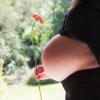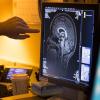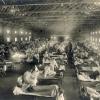Lisa Marshall
 Inoculating mothers with a beneficial microbe during pregnancy prevents an autism-like disorder in their offspring, according to a new study. The paper suggests that exposure to good bacteria during pregnancy may positively impact brain development.
Inoculating mothers with a beneficial microbe during pregnancy prevents an autism-like disorder in their offspring, according to a new study. The paper suggests that exposure to good bacteria during pregnancy may positively impact brain development. The National Institutes of Health has awarded CU Boulder $11 million to continue a study measuring how drugs, screens, concussions and more impact development, offering insight into why teenagers do the things they do.
The National Institutes of Health has awarded CU Boulder $11 million to continue a study measuring how drugs, screens, concussions and more impact development, offering insight into why teenagers do the things they do. A new brain imaging study of prairie voles—which are among only about 5% of mammalian species besides humans who are monogamous—found that when it comes to forming bonds, longing may be as important as being together. The study also sheds light on why it's so hard to social distance, and could lead to new therapies for conditions like autism and depression.
A new brain imaging study of prairie voles—which are among only about 5% of mammalian species besides humans who are monogamous—found that when it comes to forming bonds, longing may be as important as being together. The study also sheds light on why it's so hard to social distance, and could lead to new therapies for conditions like autism and depression. About 55 million U.S. kids have been hunkered down at home the past few months, often in households where both parents work full time. In honor of Mother's Day, we caught up with CU Boulder psychology professor and mother-of-two June Gruber for her perspective and advice for working moms.
About 55 million U.S. kids have been hunkered down at home the past few months, often in households where both parents work full time. In honor of Mother's Day, we caught up with CU Boulder psychology professor and mother-of-two June Gruber for her perspective and advice for working moms. A decade after President Barack Obama signed the Patient Protection and Affordable Care Act, aka Obamacare, more people are fully insured, fewer are uninsured and people who lose their insurance intermittently are no longer at greater risk of bankruptcy, according to a new CU Boulder study.
A decade after President Barack Obama signed the Patient Protection and Affordable Care Act, aka Obamacare, more people are fully insured, fewer are uninsured and people who lose their insurance intermittently are no longer at greater risk of bankruptcy, according to a new CU Boulder study. A new book by CU Boulder ethnographer Benjamin Teitelbaum explores the ultra-right spiritual ideology inspiring Steve Bannon, the former Trump strategist and other ‘global power brokers.’
A new book by CU Boulder ethnographer Benjamin Teitelbaum explores the ultra-right spiritual ideology inspiring Steve Bannon, the former Trump strategist and other ‘global power brokers.’ Imagine a test that could tell you if you were infected with COVID-19 before you had a single symptom. SickStick may offer that chance.
Imagine a test that could tell you if you were infected with COVID-19 before you had a single symptom. SickStick may offer that chance. CU Boulder history Professors Elizabeth Fenn and Susan Kent share insights from their study of disease outbreaks through the ages.
CU Boulder history Professors Elizabeth Fenn and Susan Kent share insights from their study of disease outbreaks through the ages. CU Boulder’s Natural Hazards Center has launched a global registry and is sharing grant opportunities to support social science research during the COVID-19 pandemic.
CU Boulder’s Natural Hazards Center has launched a global registry and is sharing grant opportunities to support social science research during the COVID-19 pandemic.
 A new study of more than 1,800 adult twins found that individuals who started using cannabis regularly before age 18 were more likely to suffer insomnia and sleep fewer than six hours per night as adults.
A new study of more than 1,800 adult twins found that individuals who started using cannabis regularly before age 18 were more likely to suffer insomnia and sleep fewer than six hours per night as adults.


